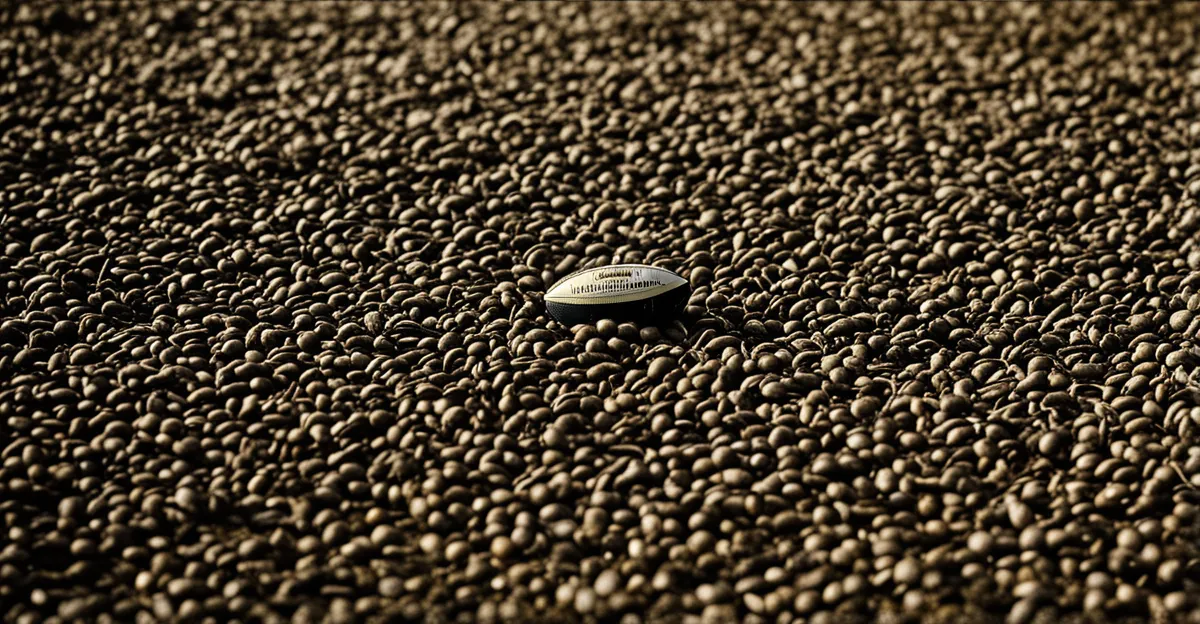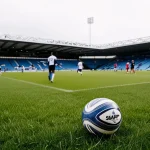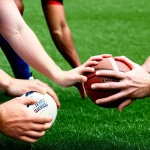Early Origins and Traditional Sports in the UK
The UK sports history traces back to ancient and medieval times, laying a rich foundation for today’s diverse sporting culture. Traditional games were deeply rooted in community and seasonal festivals, often reflecting societal values and local customs. For example, medieval folk football was a popular early UK sport; it involved large groups and few rules, illustrating the informal nature of early play.
Traditional games such as shinty, stoolball, and cricket gradually influenced the development of modern sports through their evolving rules and increasing organization. Stoolball, known as a precursor to cricket, was played primarily in southern England and displayed characteristics of batting and fielding that carried over into cricket’s formalization centuries later.
Also to discover : How Can UK Sports Influence Community Engagement?
Over time, there was a clear transition from informal play to organized activities. This shift was pivotal in shaping contemporary sports structures, as communities began codifying rules and setting regular times for matches. The growing interest in standardization during the early UK sports period provided a basis for later sports governing bodies and ultimately the global influence British sports came to enjoy.
Industrialization and the Rise of Organized Sports
The industrial revolution and sports in the UK significantly transformed participation and structure. Urbanization concentrated populations in industrial cities, creating new opportunities for leisure within limited free time. This shift expanded access to sports organization in the UK, as communities sought structured activities that fit working-class schedules. Factories often regulated leisure hours, which encouraged the development of organized sports fixtures and local clubs.
Also read : What Impact Do UK Sports Have on Community Engagement?
During the Victorian era sports boom, standardization became essential. The codification of rules for games like football and rugby reduced regional variations and made sports more accessible nationwide. This period witnessed the establishment of standardized rules and fixtures, which were critical for competitive play beyond informal matches. The emergence of written rulebooks ensured consistency and fairness, fostering inter-club competitions and heightened public interest.
Simultaneously, the formation of early clubs and associations gained momentum across the UK. These organizations formalized team structures, organized regular matches, and began to govern local sporting activities. Through such clubs, participants experienced organized training, competition schedules, and governance models that formed the backbone of modern sports organizations. Thus, the industrial age catalyzed the transition from early UK sports informal traditions to the systematized and popular sporting culture known today.
Founding of Key Governing Bodies
The mid to late 19th century marked a turning point with the establishment of critical UK sports governing bodies. The Football Association (FA), founded in 1863, was the first step toward unifying the divergent rules of early UK sports like football. This foundation enabled standardized play and formal competition, directly addressing the confusion caused by regional rule variations. Similarly, the Rugby Football Union (RFU), established in 1871, structured rugby as a distinct national sport association and set a precedent for organized sports governance.
Following these examples, other prominent sports such as cricket and tennis also formed their own national bodies. The Marylebone Cricket Club (MCC) functioned as cricket’s primary authority, codifying rules that influenced international play. Likewise, the Lawn Tennis Association organized rules and promoted tennis nationwide. Collectively, these UK sports governing bodies provided essential frameworks, ensuring consistent regulation and fostering the growth and spread of sports across the British Isles and beyond.
The formalization brought by governing bodies had a profound influence on both codification and dissemination. These organizations facilitated official rulebooks, standardized fixtures, and established official competitions, which helped transform informal pastimes into recognized sports. This progression made sports more accessible and competitive, encouraging wider public participation. The legacy of these early national associations still underpins modern sports organization UK, reflecting their lasting impact on both domestic and international sporting contexts.
The Olympic Movement and International Competitions
The UK Olympics history is distinguished by its pivotal role in founding the modern Olympic Games. British visionaries were instrumental in reviving the Olympic tradition, emphasizing international cooperation through sport. The UK’s early commitment helped shape the Olympic ethos, laying the groundwork for global athletic contests. This foundation explains why the UK remains deeply connected to the Olympic Movement.
When exploring international sporting events UK has hosted, the London Olympics stand out, with the capital city hosting the Games thrice: in 1908, 1948, and most recently in 2012. Each event reflected its era’s challenges and achievements. For example, the 1948 “Austerity Games” symbolized post-war recovery, while the 2012 Olympics showcased cutting-edge infrastructure and exceptional organizational skills. These events boosted the UK’s profile within global sports while encouraging widespread public engagement.
British athletes have consistently contributed to this legacy. Their success across various disciplines has amplified the nation’s reputation in international competitions UK frequently. Notable performances in athletics, cycling, and rowing underscore a tradition of competitive excellence. This performance history encourages continued investment in athlete development, helping sustain Britain’s status on the world stage.
Overall, the UK’s involvement in the Olympic Movement blends a rich historical commitment with ongoing influence in international sporting events. This legacy fosters national pride and supports the continuous growth of sport domestically and internationally.
Professionalization and Commercialization
The UK sports professionalization journey marks a significant evolution, moving from predominantly amateur competitions to professional leagues, particularly in football. Initially, football and other sports were played casually or as amateur pastimes, but growing public interest and competitive intensity necessitated formal structures where athletes could earn livelihoods. This shift allowed athletes to dedicate greater time and resources to training, thereby raising the overall performance standards. Professionalization also established clearer career paths within sports professions, solidifying sports as viable long-term vocations.
Alongside professionalization, commercial sports UK expanded rapidly due to the introduction of sponsorship and broadcasting deals. Businesses recognized sports as powerful platforms to reach broad audiences, thus investing heavily in advertising and partnerships. Sponsorships not only provided essential financial support but also linked brand identities with popular teams and athletes, further fueling sports’ popularity. The advent of televised matches was revolutionary, transforming local or regional competitions into nationally and internationally viewed events, enhancing both fan engagement and commercial revenues.
The sports media history in the UK reveals how media developments shaped public sports consumption. Early newspaper coverage gave way to radio broadcasts and eventually televised sports, creating new revenue streams through broadcasting rights and sponsorships. The media’s role expanded beyond reporting to actively shaping narratives around teams, athletes, and competitions, building fan communities and sustaining interest. This development coincided with professionalization, as media exposure amplified athlete profiles and solidified the business side of sports.
Together, professionalization and commercialization formed a mutually reinforcing dynamic. Professional leagues needed commercial investment to grow and sustain operations, while sponsors and media outlets depended on professionalized sports to attract consistent, engaged audiences. Today’s thriving sports ecosystem in the UK results directly from these historical shifts, embodying the transformation from informal recreation to major economic and cultural institutions.
Government Involvement and Policy Reform
Government intervention has played a crucial role in shaping modern UK sports policy, ensuring broader access and enhanced quality across all levels of sport. One of the most significant milestones was the establishment of the Sports Council in 1965, which coordinated efforts to distribute public funds and develop sporting infrastructure nationwide. This body laid the groundwork for systematic government support, bridging gaps between elite sports and community participation.
A key question: How does government sports funding impact athlete development in the UK? The answer is that through targeted financial support, including the substantial contributions from the National Lottery funding, government initiatives have bolstered training programs, talent identification, and facilities. This funding allows emerging athletes to access resources previously limited to elite circles, fostering a pipeline for international competitiveness. It has also been instrumental in expanding grassroots programs, widening participation across socio-economic groups.
In addition to funding, sports legislation UK has evolved to strengthen equal opportunity and inclusion in sports. Policies mandating physical education in schools create a foundation for lifelong engagement, while recent reforms address barriers faced by underrepresented groups, including women and disabled athletes. This multifaceted approach ensures sport’s benefits reach diverse communities and support social cohesion.
Overall, the UK government’s sustained involvement facilitates structured growth and inclusivity in sports. Through cohesive policy frameworks and consistent investment, the government helps maintain the country’s competitive edge and promotes health and well-being across society.
Contemporary Milestones and Inclusive Developments
The UK sports modern history is marked by substantial progress in inclusion in sports UK, reflecting a commitment to diversity and equal opportunity. A defining milestone has been the increased prominence of women’s participation in competitive sports. This growth, supported by policy changes, funding, and cultural shifts, has expanded opportunities across multiple disciplines, including football, athletics, and rugby. Women’s sports leagues and competitions have gained visibility, encouraging wider involvement and inspiring future generations.
Equally significant is the rapid advancement of para-sports within the UK sporting landscape. The country has championed accessibility and competitive platforms for athletes with disabilities, celebrating achievements on both national and international stages. Events like the Paralympic Games, regularly supported by UK sports organizations, play a crucial role in promoting inclusion and raising public awareness about diverse athletic talents.
In addition to inclusivity, recent years have seen the UK excel in hosting and success in recent global tournaments. Beyond the historic Olympics, the UK has successfully staged major events such as the Commonwealth Games and UEFA European Championships. These occasions not only boost national pride but provide opportunities to showcase cutting-edge infrastructure and organizational expertise in sports management.
Technological advancements also shape the future of UK sports. Innovations in performance analytics, broadcasting, and fan engagement platforms create new experiences for athletes and audiences alike. By embracing these trends, the UK continues to position itself at the forefront of modern sport, fostering growth while maintaining strong traditions.
Together, these developments illustrate how the UK’s modern sports narrative intertwines inclusive progress with global influence and technological innovation, ensuring its relevance and vitality moving forward.









